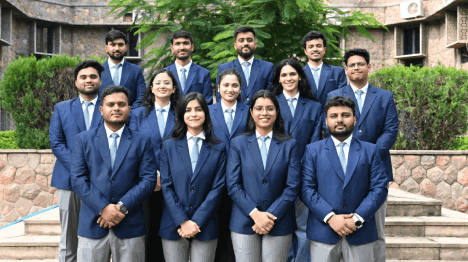Program Duration
The Master of Public Health Programme is a twoyear full-time degree programme. The programme will have some common foundational courses in the initial phase followed by the option to choose either for general track MPH or specialized MPH . The programme 2025-2027 will commence from August 2025 at IIHMR University, Jaipur Campus.
Learning Pedagogy
The pedagogy in each course is selected judiciously, with an emphasis on involving the students in learning and helping them to relate concepts and theory to the real-world situation in public health , management and its implementation. The programme is conducted with intensive teaching and learning methods which includes classroom teaching and capstone project in the first year and practicum during the second year.
Capstone Project
The MPH Capstone project is a graduation requirement for students in the Master of Public Health programme. It of the programme and provides students with an opportunity to work on public health projects that are particularly interesting to them.
Practicum
The practicum assignment is part of the second year of the programme. The students will be working on their practicum assignment under the guidance of the assigned faculty and organizational mentors / advisor. The practicum requirement intends to engage students in research activities aligned with their career goals and activities that demonstrate the application of public health core concepts and critical thinking relevant to the student's chosen area in community / field settings.
Key Highlights of the programme
- Experiential Learning: Public health competency-based curriculum for developing world health challenges & solutions.
- Global public health faculty and practitioners from reputed institutions.
- A global classroom of public health learners
- Innovative methodologies like learning through rigorous urban and rural fieldwork and using public health skills in different public health scenarios.



